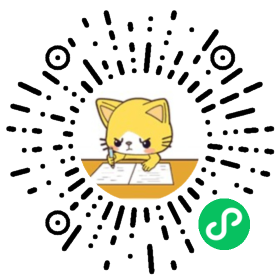相关试题
【单选题】
辩证法所说的矛盾是指___
A. 人们思维中的前后不一的自相矛盾
B. 事物之间或事物内部各要素之间的对立统一
C. 对立面之间的相互排斥
D. 事物之间或事物内部各要素之间的相互依赖
【单选题】
矛盾的基本属性是___
A. 普遍性和特殊性
B. 绝对性和相对性
C. 变动性和稳定性
D. 斗争性和同一性
【单选题】
依据是___
A. 矛盾的同一性和斗争性辩证关系的原理
B. 矛盾的普遍性和特殊性辩证关系的原理
C. 事物发展的量变和质变辩证关系的原理
D. 事物发展的内因和外因辩证关系的原理
【单选题】
矛盾问题的精髓是___
A. 矛盾的普遍性和特殊性关系的问题
B. 矛盾的同一性和斗争性关系的问题
C. 主要矛盾和次要矛盾关系的问题
D. 矛盾的主要方面和次要方面关系的问题
【单选题】
在我国战国时期,公孙龙提出“白马非马”。这个命题的错误在于它割裂了___
A. 主要矛盾和次要矛盾的联系
B. 矛盾的主要方面和次要方面的联系
C. 矛盾的同一性和斗争性的联系
D. 矛盾的特殊性和普遍性的联系
【单选题】
对待改革开放和社会主义现代化建设,有的人只看到存在的困难和问题,看不到取得的巨大成就;有的人只看到取得的巨大成就,看不到存在的困难和问题。这两种看问题的方法都是___
A. 重点论
B. 均衡论
C. 一点论
D. 两点论
【单选题】
“任何个别(无论怎样)都是一般”。这句话的正确含义是___
A. 特殊性就是普遍性
B. 特殊性存在于普遍性之中
C. 普遍性是特殊性的总和
D. 特殊性中包含普遍性
【单选题】
在唯物辩证法看来,水果同苹果、梨、香蕉、桔子等的关系是___
A. 共性和个性的关系
B. 整体和部分的关系
C. 本质和现象的关系
D. 内容和形式的关系
【单选题】
在马克思主义普遍原理指导下,从中国的基本国情出发,走自己的路。这体现了___
A. 矛盾的同一性和斗争性的的统一
B. 矛盾的普遍性和特殊性的统一
C. 事物发展的量变和质变的统一
D. 事物发展的前进性和曲折性的统一
【单选题】
“是就是是,不是就是不是,除此之外都是鬼话。”这是一种___
A. 形而上学的观点
B. 相对主义的观点
C. 唯心主义的观点
D. 辩证法的观点
【单选题】
真象和假象的区别在于___
A. 真象是客观的,假象是主观的
B. 真象表现本质,假象不表现本质
C. 真象深藏于事物内部,假象外露于事物外部
D. 真象从正面直接地表现本质,假象从反面歪曲地表现本质
【单选题】
种___
A. 辩证唯物主义决定论的观点
B. 形而上学的机械决定论的观点
C. 唯心主义非决定论的观点
D. 庸俗唯物主义的观点
【单选题】
“或然率”是指___
A. 可能性在质上的一种科学说明和测定
B. 可能性在量上的一种科学说明和测定
C. 必然性的一种科学说明和判定
D. 偶然性的一种科学说明和测定
【单选题】
马克思主义认识论的首要的基本的观点是___
A. 客观实在性的观点
B. 主体性的观点
C. 反映的观点
D. 实践的观点
【单选题】
马克思主义认为,从实践的活动机制看,实践是___
A. 主体与客体通过中介相互作用的过程
B. 道德行为和政治活动
C. 生活、行为、现实、实事等感性活动
D. 科学实验
【单选题】
实践的客体是___
A. 绝对精神的对象化
B. 客观物质世界
C. 人的意识的创造物
D. 进入主体的认识和实践范围的客观事物
【单选题】
马克思主义认为,主客体之间的价值关系是指___
A. 主体对客体的物质欲望和要求
B. 主体对客体的能动反映
C. 主体对客体的改造和变革的结果
D. 客体对于主体的有用性和效益性
【单选题】
唯物主义认识论是___
A. 先验论
B. 反映论
C. 能动的革命的反映论
D. 不可知论
【单选题】
对不可知论以最有力驳斥的是___
A. 客观真理
B. 客观事实
C. 社会实践
D. 规律规律
【单选题】
恩格斯说:“社会一旦有技术上的需要,则这种需要比十所大学更能把科学推向前进。”这在认识论上说明___
A. 技术推动了科学的发展
B. 实践是认识发展的动力
C. 实践是认识的来源
D. 科学技术的发展超过了社会实践的发展速度
【单选题】
“纸上得来终觉浅,绝知此事要躬行”,陆游这一名句强调的是___
A. 实践是认识的来源
B. 实践是推动认识发展的动力
C. 实践是认识的目的
D. 间接经验毫无用处
【单选题】
实践之所以是检验真理的唯一标准,就实践自身的特点而言因为___
A. 它是对人类有用的活动
B. 它是多数人参加的活动
C. 它是具有普遍性和直接现实性的活动
D. 它是具有主观性的活动
【单选题】
感性认识和理性认识的区别在于___
A. 感性认识是对事物现象的认识,理性认识是对事物本质的认识
B. 感性认识来源于实践,理性认识来源于书本
C. 感性认识是直接经验,理性认识是间接经验
D. 感性认识可靠,理性认识不可靠
【单选题】
理性认识的特点是___
A. 概念、判断、推理
B. 抽象性、间接性
C. 感觉、知觉、表象
D. 形象性、直接性
【单选题】
列宁说:“没有革命的理论,就不会有革命的行动”,这句话应理解为___
A. 革命运动是由革命理论派生的
B. 革命理论对革命实践具有最终决定作用
C. 革命理论是革命运动的基础
D. 革命理论对革命实践具有重要的指导作用
【单选题】
直接经验和间接经验的关系是___
A. 认识中的“源”和“流”的关系
B. 认识中的内容和形式的关系
C. 实践和理论的关系
D. 感性认识和理性认识的关系
【单选题】
感性认识的基本形式是___
A. 概念、判断、推理
B. 抽象性、间接性
C. 感觉、知觉、表象
D. 形象性、直接性
【单选题】
C.混淆了感性认识和理性认识的界限 D.割裂了感性认识和理性认识的辩证关系16、我们感觉到一个苹果的形状、大小、颜色、轻重、气味、滋味和软硬等各种属性,在意识中把它们结合起来,就形成了这个苹果的整个感性形象,这种反映形式是___
【单选题】
毛泽东说:“感觉到了的东西,我们不能立刻理解它,只有理解了的东西,才更深刻地感觉它。”这一论断揭示了___
A. 感性认识是整个认识的起点
B. 感性认识的局限性
C. 感性认识对人们认识事物本质没有实际意义
D. 理性认识先于感性认识
【单选题】
哲学史上有唯理论和经验论两大派别长期争论不休,对它们的正确评价是___
A. 唯理论是正确的,经验论是错误的
B. 经验论是正确的,唯理论是错误的
C. 唯理论和经验论都是完全错误
D. 唯理论和经验论各有片面的真理性
【单选题】
认识论上唯理论的错误在于___
A. 否认理性认识的重要性
B. 否认感性认识的重要性
C. 否认世界的可知性
D. 否认认识是对客观世界的反映
【单选题】
认识论上经验主义的错误在于___
A. 否认理性认识的重要性
B. 否认感性认识的重要性
C. 否认世界的可知性
D. 否认认识是对客观世界的反映
【单选题】
列宁提出的:“从物到感觉和思想”与“从思想和感觉到物”是___
A. 唯物主义认识论和唯心主义认识论的对立
B. 经验论和先验论的对立
C. 反映论和唯理论的对立
D. 可知论和不可知论的对立
【单选题】
法国科学家路易·巴斯德说:“在观察事物之际,机遇偏爱有准备的头脑”。这句话强调了___
A. 人们只有发挥主观能动性才能认识事物
B. 人们获得感性经验至关重要
C. 人们不仅要善于观察事物,而且要善于思考问题
D. 人们在认识事物时要有理性指导
【单选题】
马克思指出:“搬运夫和哲学家之间的原始差别要比家犬和猎犬之间的差别小得多,它们之间的鸿沟是分工掘成的。”这表明___
A. 人的聪明才智无先天差别
B. 人的聪明才智的大小主要取决于主观努力的程度
C. 人的聪明才智主要来源于后天实践
D. 人的聪明才智由人的社会政治地位决定
【单选题】
真理的客观性是指___
A. 真理是人类经验的组织形式
B. 真理的形式是客观的
C. 真理对实践的指导作用是客观的
D. 真理的内容和检验标准是客观的
【单选题】
___
A. 真理具有客观性
B. 真理具有绝对性
C. 真理具有相对性
D. 真理具有全面性
【单选题】
真理的发展是一个___
A. 相对真理不断积累相加的过程
B. 主观真理与客观真理相互转化的过程
C. 真理与谬误相协调的过程
D. 真理和谬误相斗争的过程
【单选题】
“真理是思想形式,是人类经验的组织形式。”这是___
A. 唯物主义客观真理观
B. 辩证真理观
C. 唯心主义主观真理观
D. 形而上学真理观
【单选题】
绝对真理是指___
A. 绝对正确的认识
B. 终极真理
C. 永恒不变的真理
D. 任何真理都有不依赖于主体的客观内容
推荐试题
【单选题】
___,是伟大事业出发的起点。
A. 党的历史
B. 党的初心
C. 党的恒心
D. 党的领导
【单选题】
要坚持把___作为检验消防救援工作的根本标准。
A. 党委肯定
B. 政府支持
C. 人民满意
D. 群众支持
【单选题】
消防救援队伍要以竭诚为民的实际行动当好党和人民的___。
A. 守护者
B. 保护者
C. 守夜人
D. 忠诚卫士
【单选题】
消防救援工作的___在人民( -)在人民。
A. 需求、需要
B. 根本、血脉
C. 根基、血脉
D. 根基、血缘
【单选题】
消防救援工作一头连着经济发展和社会稳定,一头连着千家万户的平安和幸福,具有很强的___和实践性。
A. 普遍性
B. 联系性
C. 广泛性
D. 群众性
【单选题】
面对越来越复杂化、多样化的灾害风险形势,必须增强忧患意识,坚持___的发展思想。
A. 以人民为中心
B. 以发展为中心
C. 稳中求快
D. 又快又好
【单选题】
要根据现代火灾扑救和应急救援实战需要,完善各类应急救援预案,加强___,不断提高组织指挥能力和快速反应能力。
A. 高强度训练
B. 针对性训练
C. 实战化演练
D. 实战化训练
【单选题】
长期以来,消防救援队伍始终以誓言如山的责任担当和大无畏的英雄主义气概,视人民安危为生命、将___作使命。
A. 上级命令
B. 政府指示
C. 群众期盼
D. 灾情
【单选题】
应急管理部作为防范化解___的主管部门。
A. 灾害事故
B. 自然灾害
C. 安全事故
D. 重特大安全风险
【单选题】
积极构建消防政务系统,联通政府政务平台,加强___建设,简化办事流程、优化审批事项、压减审批时间,倡导“马上办、网上办、就近办、一次办”服务理念。
A. 消防窗口
B. 消防执法
C. 行政审批
D. 执法规范化
【多选题】
牢记应急管理工作的初心使命,坚持把人民对美好生活的向往作为奋斗目标,着力提高国家应急管理能力和水平,提高___能力。
【多选题】
竭诚为民是消防救援队伍践行党的宗旨的集中体现,主要体现在以下几个方面___。
A. 始终把人民放在心中最高位置
B. 始终把人民褒奖作为最高荣誉
C. 始终把人民需要作为最高指引
D. 始终把人民利益作为最根本点
【多选题】
赴汤蹈火的工作要求是___。
A. 锻造服从命令、听从指挥的号令意识
B. 保持枕戈待旦、快速反应的备战状态
C. 练就科学高效、专业精准的过硬本领
D. 发扬英勇顽强、不怕牺牲的战斗作风
【多选题】
消防救援队伍实行严格的纪律、严密的组织,按照准现役、准军事化标准建设,___。
A. 严格教育
B. 严格训练
C. 严格管理
D. 严格要求
【多选题】
组建国家综合性消防救援队伍的基本原则是___
A. 坚持党的绝对领导
B. 坚持从国情出发
C. 坚持战斗力标准
D. 坚持稳妥有序推进
【多选题】
国家综合性消防救援队伍是___的队伍,是( - )的队伍,是和( - )的队伍,是人民的队伍
A. 维护人民群众生命财产安全
B. 人民群众身边
C. 人民群众可靠
D. 人民永远心连心、共命运
【多选题】
任何单位和个人都有___的义务。
A. 维护消防安全
B. 保护消防设施
C. 预防火灾
D. 报告火警
【多选题】
组建国家综合性消防救援队伍的基本原则是___
A. 坚持党的绝对领导
B. 坚持从国情出发
C. 坚持战斗力标准
D. 坚持稳妥有序推进
【多选题】
消防救援干部按规定参加专门___。
A. 业务培训
B. 在职培训
C. 任职培训
D. 专业培训
【多选题】
竭诚为民是夯实消防救援事业根基的必然要求主要体现在以下那几个方面?___
A. 消防救援工作的根基在人民血脉在人民
B. 消防救援工作与人民群众贴得最近联系最紧
C. 消防救援工作来自于人民根植于群众
D. 消防救援事业需要全民参与
【多选题】
消防救援队伍各级必须坚持___,持续正规“四个秩序”。
A. 按纲要建
B. 按大纲训
C. 按条令管
D. 按纲治队
【多选题】
2019年修正的《中华人民共和国消防法》明确了消防工作贯彻预防为主、防消结合的方针,按照___的原则实行消防安全责任制,建立健全社会化的消防工作网络
A. 政府统一领导
B. 部门依法监督
C. 单位全面负责
D. 公民积极
【单选题】
属性所取的值的变化范围,即同一实体集中各实体同一属性具有的值在一定范畴之间,这一范畴被称属性的___。
【单选题】
储蓄所有多个储户,储户能够在多个储蓄所存取款,储蓄所与储户之间是___。
A. 一对一的联系
B. 一对多的联系
C. 多对一的联系
D. 多对多的联系
【单选题】
保持数据库的完整性属于数据库管理系统___的功能。
A. 数据定义
B. 数据操纵
C. 数据库的运行控制
D. 数据库的建立和维护
【单选题】
物理独立性是依靠___映像实现的。
A. 模式/内模式映象
B. 外模式/内模式映象
C. 外模式/模式映象
D. 内模式/模式映象
【单选题】
对于大型企业而言,应该采用___版本的SQL Server 2008。
A. 企业版
B. 工作组版
C. 开发者版
D. 精简版
【单选题】
要使用SQL Server 2008,必须至少启动以下___服务。
A. 数据库引擎
B. 分析服务
C. 报表服务
D. 集成服务
【单选题】
___是位于用户与操作系统之间的一层数据管理软件,它属于系统软件,它为用户或应用程序提供访问数据库的方法。数据库在建立、使用和维护时由其统一管理、统一控制。
A. DBMS
B. DB
C. DBS
D. DBA
【单选题】
在SQL Server2008中,下面选项中以___为后缀的文件不是sql数据库的文件类型。
A. mdf
B. ldf
C. tif
D. ndf
【单选题】
SQL Server系统中所有系统信息存储于那个数据库___。
A. master
B. model
C. tempdb
D. msdb
【单选题】
记录数据库事务操作信息的文件是___。
A. 数据文件
B. 索引文件
C. 辅助数据文件
D. 日志文件
【单选题】
在SQL Server中,下列关于数据库的说法正确的是___。
A. 一个数据库可以不包括事务日志文件
B. 一个数据库可以只包含一个事务日志文件和一个数据文件
C. 一个数据库可以包含多个数据文件,但只能包含一个事务日志文件
D. 一个数据库可以包含多个事务日志文件,但只能包含一个数据文件
【单选题】
删除数据库的命令是___。
A. Delete database 数据库名
B. sp_helpdb database数据库名
C. Drop table 数据库名
D. Drop database数据库名
【单选题】
若要使用多个文件,为了便于管理,可使用___。
A. 文件夹
B. 文件组
C. 复制数据库
D. 数据库脱机
【单选题】
在SQL Server 中,用来更改数据库名称的系统存储过程是___。
A. sp_dbhelp
B. sp_db
C. sp_help
D. sp_renamedb
【单选题】
___是对数据库进行插入、删除、修改和查询等基本操作。
A. 数据定义
B. 数据操纵
C. 内模式
D. 外模式
【单选题】
在Transact-SQL语句中,建立表时用到的命令是___。
A. CREATE
B. BUILD
C. CLEAR
D. REMOVE
【单选题】
SQL语言中,删除表中数据用到的命令是___。
A. DELETE
B. DROP
C. CLEAR
D. REMOVE
【单选题】
有一个关系:学生(学号,姓名,所在系),规定学号不能为空、不能重复,这一规则属于___。
A. 实体完整性约束
B. 关键字完整性约束
C. 参照完整性约束
D. 用户自定义完整性约束



